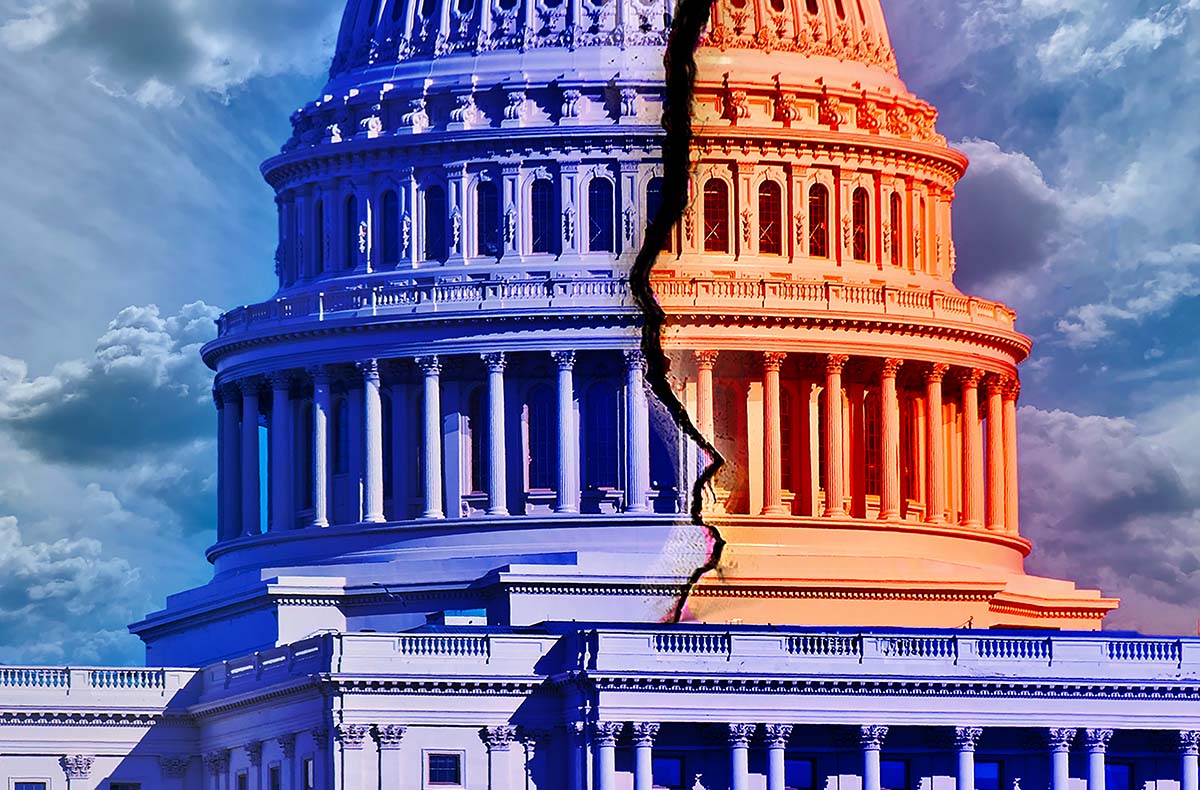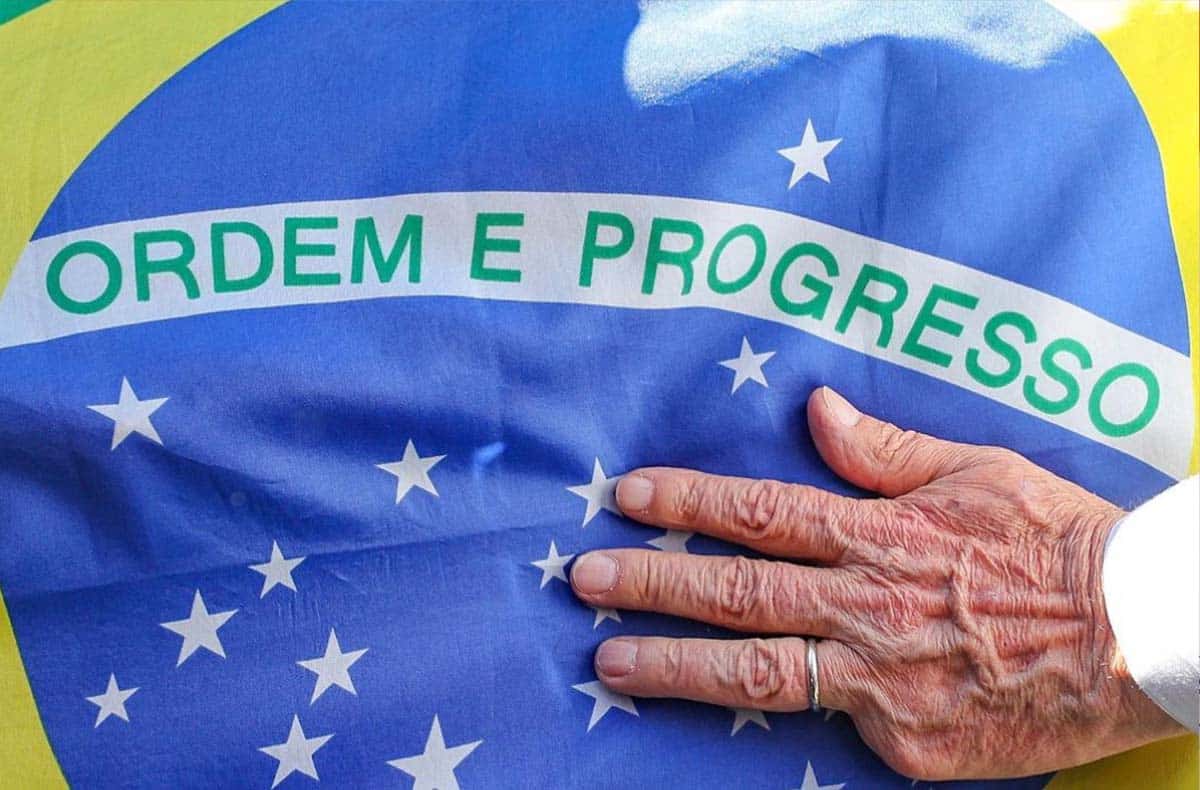
On January 8, 2023 around 4,000 supporters of former far-right Brazilian President Jair Bolsonaro attacked the country’s National Congress (as well as the Supreme Court and Presidential Palace.) These scenes were shocking, but not surprising to those familiar with the politics and history of the movement which he has been at the heart of.
Insurgency
A fleet of forty buses transported scores of “Bolsonaristas” from across Brazil to support a small group camped outside army headquarters, before marching to call on the military to intervene and overturn the results of last October’s Presidential election, which saw the incumbent defeated by Workers’ Party (PT) candidate Luiz Inácio Lula da Silva (who previously held the office from 2003-10). Those in attendance—many brandishing sticks—broke through police barriers and entered the Congress, where they vandalized the building, assaulted photographers and journalists, and engaged in looting.
Understandably, for many in the English-speaking world these images sparked immediate comparisons with the events seen in Washington D.C. at the beginning of 2021: when a demonstration held by supporters of Donald Trump demanding a halt to the counting of electoral college votes (set to confirm the victory of Democratic candidate Joe Biden) culminated in around 2,000 rioters entering the Capitol building. As well as the similarity of the physical acts committed, and the fact that events in Brasília occurred just two days after the second anniversary of those in Washington, there are no shortage of parallels to be found in the processes which led to them, and the forces which drove them.
Comparisons With the Capitol Riots of January 6th, 2021
Both mobilizations were called on the pretext of stopping the “stealing” of elections, with unsubstantiated accusations of widespread electoral fraud being disseminated amongst online networks of supporters to explain the defeat of their favored candidates. Other tactics used by movements in both countries throughout their campaigns included deploying McCarthyite rhetoric about a supposed Marxist ploy to take over national institutions, along with other conspiracy theories: false claims spread in pro-Bolsonaro circles that prominent PT figures had given sexualized products to schoolchildren as part of an anti-discrimination initiative were certainly reminiscent of rhetoric used by the QAnon movement which formed around Trump’s campaign.
Indeed, there are even direct ties between key individuals—Bolsonaro’s son Eduardo, himself a member of Brazil’s lower house, serves as South American representative in the leadership of The Movement, an international right-wing organization founded by Steve Bannon (former Chief Strategist in the Trump White House). Bannon (who is currently appealing a prison sentence handed to him for refusing to cooperate with the U.S. House Select Committee investigating the Capitol attack) praised those who rioted in the Brazilian congress as “freedom fighters,” and endorsed claims that their election had been “stolen.” Bolsonaro himself has so far spent 2023 based in Florida.
A History of Political Turmoil
However, there is also a specific dynamic to national and regional political history that makes the threat posed to democracy in Brazil all the more significant. Bolsonaro is one of the millions of Brazilian citizens alive today who lived through the 21 years of military dictatorship following a coup against left-leaning President João Goulart in 1964. His assessment of this period was more positive than many—so much so that two years after the restoration of electoral democracy, he was convicted of plotting with a fellow army member to plant a series of bombs in a bid to restore military rule. (This conviction was subsequently overturned by the national Superior Military Court).
Violence against political opponents occurred repeatedly throughout his rise to power and tenure as president, with the assassination of Marielle Franco (a progressive elected Councillor in Rio de Janeiro) in 2018 being a particularly brutal and notable example. The new government has emphasized its commitment to ensuring the conviction of all those involved in her murder, and her sister Anielle was appointed Minister for Racial Equality earlier this month.
Latin America has also had a long and bloody history of coups against elected governments, often with the backing of U.S. administrations: not only in cases such as the instillation of Chilean dictator General Pinochet in 1971, but more recent examples including the ousting of President Manuel Zelayas of Honduras in 2009, and the overturning of the 2019 Bolivian election. 2023 has already seen the killing of nearly 40 protesters following the removal of Peruvian President Pedro Castillo, and the discovery of an explosive device near the home of Colombian Vice President Francia Márquez.
The attempt to reverse last year’s electoral results has been met with a strong response within Brazil, both from Lula himself, who intervened to ensure his administration took charge of security in Brasilia, and from social movements, who rallied thousands in defense of democracy across the country.
Statements from governments and institutions across the world condemning the events are to be welcomed, but they must be followed by a decisive break from the foreign policy approach to Brazil seen by all too many powerful states in recent years. Leaked conversations with figures in the Justice Department revealed US involvement in the widely discredited “Operation Car Wash”—nominally an anti-corruption drive, the investigation was key both in the removal of elected PT President Dilma Rousseff in 2016, and the subsequent jailing of Lula, which ensured he could not stand in the 2018 election (polling at the time showed him with a significant lead). Sergio Moro, the judge in his case, later served as Justice Minister under Bolsonaro. Members of the British Parliament have also criticized their government’s refusal to clamp down on banks and corporations with links to his government’s devastating programme of deforestation in the Amazon.
Looking to the Future
In his inauguration speech at the start of this year, President Lula expressed his wish:
That the hope of today ferments the bread that is to be shared among all, and that we are always ready to react in peace and order to any attacks from extremists who want to sabotage and destroy our democracy. In the fight for the good of Brazil we will use the weapons that our adversaries fear the most: the truth that has overcome the lie, the hope that has overcome fear, and the love that has defeated hatred.
As well as on principle, the political and environmental importance of Brazil for the world should mean that all supporters of democracy and social progress stand with those on the side of the country’s majority.


